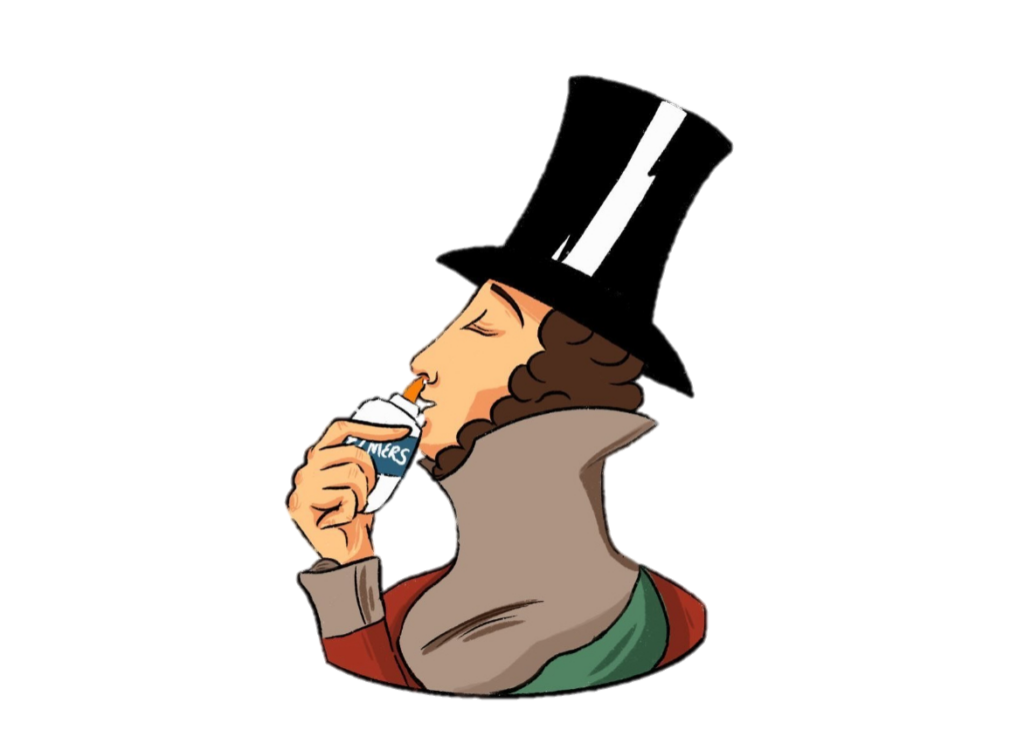The men’s squash team gathered at senior captain Jack Levine’s East Campus townhouse on March 21 to celebrate its annual harvest sacrifice, using a sharpened racket to consign freshman Albert Chung to eternal glory in the afterlife. The ritualistic bloodletting is designed to appease the god of agriculture, Freyr, as well as the Lacoste promotions department, who have regularly bestowed bountiful promotions on wide-striped crewneck t-shirts and slim fit socks since the team began observing the rite in 1994.
“This sacrifice shall honor Odin, Lord of the Aesir, Gore Master, God of the Raven-Offering! Glory to Loki the Sky Traveler, the Sly One, the Trickster! Thanks to Thor the strong archer, guard of the shrine, the one who rules alone,” Levine and the team’s other two captains chanted, wearing pure white woolen gowns.
Their tongues were caked black with charcoal as they read out the terms of the prayer in Old Norse from their iPhones. “Freyr the blesser of fields, the boar rider, the ancient one, we supplicate you,” said Levine, who had texted his RA that the team would be coming over to watch “The Shining.”
“Yo, guys, hold up,” said junior backswing specialist Nick Tsipras, as the final touches were put on the blade of the Dunlop Aerogel 4D Evolution racket. Tsipras bowed in obeisance to Kvasir, the Norse creator-god who was drained of his blood so that poets might be inspired to sing his tribute hymns, before pressing “record” on his Snapchat.
“Does anyone know how to add the Columbia geotag? Cause our team is really killing the game right now.” Tsipras said. “I heard Penn and Harvard still haven’t even selected their sorority battlewives.”
Levine explained that the team’s decision to convert to a puritanical version of Norse paganism was sparked by a revelation experienced by former captain Rick Graham while watching the 1973 British horror movie “The Wicker Man,” in which an overly inquisitive policeman meets his doom inside a flaming willow-fibre statue while investigating allegations of human sacrifice in a small town in Scotland.
At the time, the team had been on a 6-week losing streak and all hope of a winning record, Ivy title, or salvation from the drowning of the world after the climactic battle of the Gods at Ragnarok had been lost.
Graham reflected on the team’s options – practice more often or harder; recruit athletes from actual sports; disband and acknowledge the reality that squash was just tiding the team over until Dad got them a job in Sales – and came to the obvious conclusion that the time had come for more drastic, blue paint-daubed religious measures.
A range of options from reform Judaism to the Aztec ball game were considered, but ultimately Graham’s proposal to take up polytheistic Scandinavian harvest rituals was adopted following the appearance of a blood moon auguring victory outside the courts of Drexel University before the team’s first win of the season. From that day in autumn 1994, the team solemnly observed the tenets of the Norse religion, including ancestor worship of alumni, caste-based slavery of walk-ons, and ritualized sacrifice during the Nordic spring festival of Ēostre.
While the team encountered some recruiting challenges in the first several years after they implemented their new religious doctrine, coach Gary Smeckledorf found that it was significantly easier to persuade potential high school signings to come to Columbia after making them aware of various rewards the gods conferred on the squash team. These benedictions ranged from lustrous blond hair to superhuman strength and 50% rewards cards at Macy’s, which was enough for most recruits to get on board.
“At first I thought, why would I come to a school where my exsanguinated body could be given over to the gods in the peat bogs by the Manhattan River?” Chung asked, preparing himself for his final ablution. “But eventually I realized, there’s only like a one in seven chance that Freyr demands my death, and I can get so many nice clean turtlenecks in the meantime.”
The team has enjoyed a strong .550 record and captured three Ivy league titles in the years since 1994, a far cry from its rough origins back in the 60s and 70s when Columbia squash could barely buy a win. Levine said that he would miss Chung, but all in all, the harvest sacrifice was definitely worth the cost in human life.
“Albert is a good guy, and so were Simon and Chris and that one kid from Berkeley. But when it comes to satiating the eternal bloodlust of the Old Gods, somebody’s gotta take one for the team,” said Jack, bowing towards a runestone in the corner of the townhouse that had begun to glow and levitate. Levine grasped the handle of the whetted racket and stepped towards Chung.
“Sorry, pal. Squash waits for no man.”

